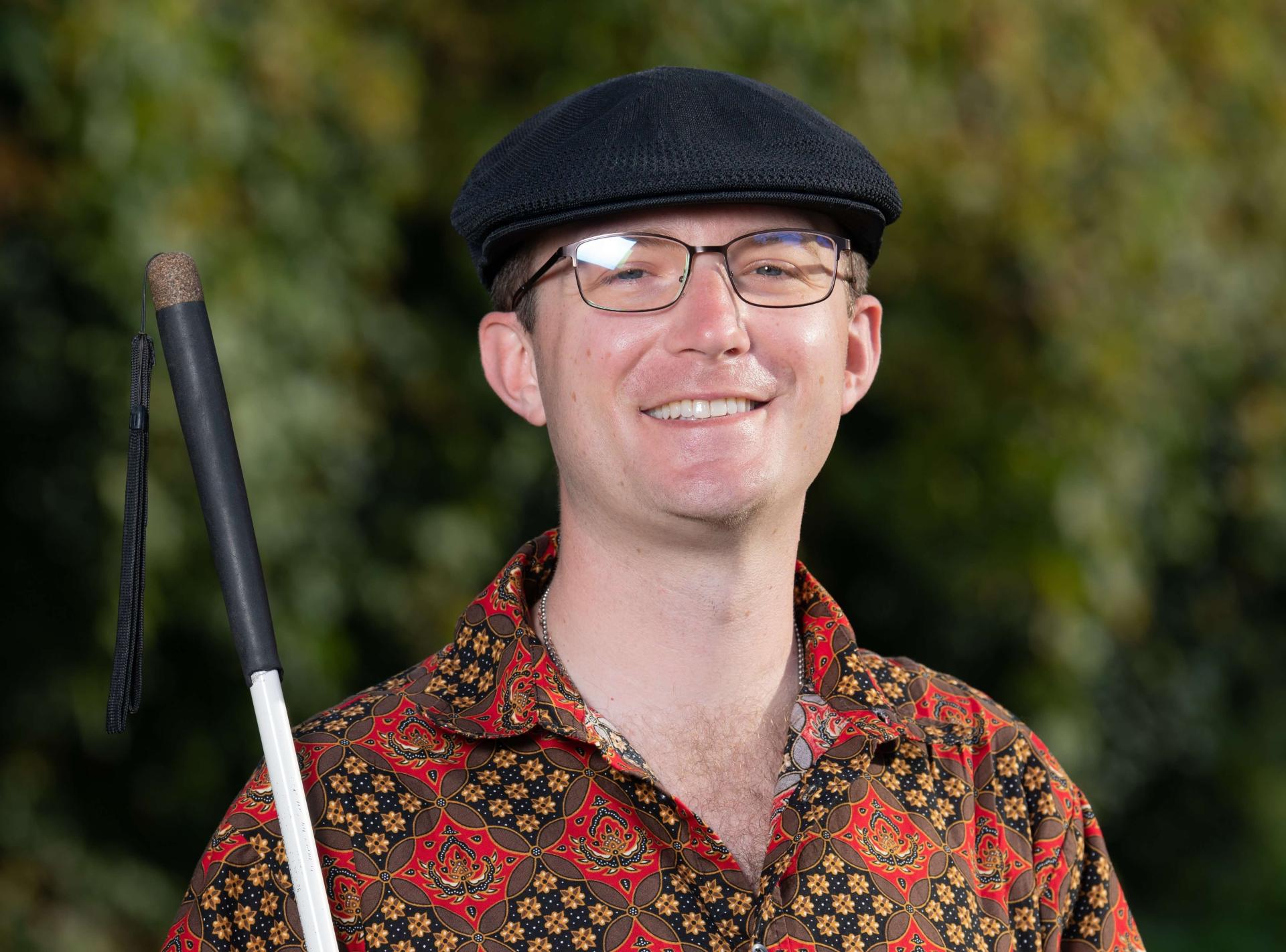It was the convergence of many things that led Justin Salisbury to the University of Vermont's Educational Leadership and Policy Studies Ph.D. program, but it may well have started in 2002 when Justin was just a teenager and Vermont became the first state to eliminate segregated, subminimum-wage work environments. That is, about 20 years ago.
For Vermont, this action resulted in an outcropping of resources and programs in related areas, leading to the state being considered a resource for the rest of the nation on the conversion to competitive and integrated employment for workers with disabilities.
A nexus of activity in the field is UVM's Center on Disability and Community Inclusion, housed within the College of Education and Social Services (CESS), where faculty have received international awards for their transformative work on job training and transition to employment for people with disabilities. Justin was thrilled to land a Graduate Research Assistantship at the Center as it affords him the opportunity to work and study with talented researchers in his varied areas of interest, which include systems of power; the reproduction of social hierarchies; and sexual violence among disproportionately affected populations, including indigenous people and people with disabilities.
In the early months of 2002, as the last sheltered workshop in Vermont was finishing its transition, Justin was involved in a winter sports accident, and complications from it led him to become blind in 2004. Without knowing any successful blind role models, he decided to become the first person in his family to go to college. After completing his undergraduate degree, he attended a 9-month training program at the Louisiana Center for the Blind that changed his life, and now he has decided to bring his math and economics background to education.
Prior starting a Ph.D. in education, Justin worked as a cane travel instructor for blind teens and adults in Honolulu, Hawaii. He taught in a residential adjustment-to-blindness training center for adults who were either losing their vision or who were already totally blind. Residents would come to the training center for about nine months. The training center functioned as a 24/7 "attitude factory," where students would learn nonvisual techniques, problem-solving skills as well as attitudes and communication styles that would help them to succeed. This training model is known as "Structured Discovery." It teaches learners to advocate for themselves and for the blind community more broadly—ideally as a part of the organized blind movement.
The Structured Discovery approach to blindness rehabilitation was born out of a social justice movement led by the National Federation of the Blind where blind people elect their own leaders and speak for themselves. Structured Discovery practitioners are not merely teachers of nonvisual skills, but they are a part of the broader movement to raise the blind from their de facto place as second-class citizens to first-class status in society, eliminating the primary barriers that blind people face, which come from low expectations and misperceptions. Given the proper training and opportunity, blind people can lead ordinary and productive lives, competing on terms of equality with their sighted counterparts.
Historically, the Structured Discovery model has not been widely used on the East Coast. Since other blindness rehabilitation programs had already been established in many places on the East Coast when the Structured Discovery model blossomed, it mainly flourished west of the Mississippi River. However, there is growing interest in this model on the East Coast, as Vermonters and others continue to migrate west in order to receive adequate training. After spending almost a decade out west, Justin is bringing seeds of Structured Discovery back home to New England.
Though largely a result of his history and life experiences, some of the coincidences and convergences that brought Justin to UVM are uncanny, including the fact that UVM is located in traditional Wabanaki* territory, and Justin is Wabanaki. This fact gives special significance to his presence at this institution and undergirds his interest in studying reconciliation efforts by land-grant universities like UVM as well as his interests in dismantling lingering eugenics practices, such as the termination of parental rights based on a parent's disability. Justin has some past experience in this area too. He was working as a Legislative Aide in the Hawaii State Senate during the 2019 session when that state enacted a law that created a right for people with disabilities to raise their own children. This invaluable experience will certainly aid and guide his future research and social justice efforts.
Justin's interests and activities are not only broad, but deep as well. In fact, he has already made a mark in the field of education and disabilities activism. Prior to coming to UVM, he presented at numerous professional development conferences for teachers of the blind and published a number of peer-reviewed professional practice articles in the field. Check out his ResearchGate profile for links to his work.
Recently, Justin appeared in a feature on The Daily Show with Trevor Noah for his advocacy to end subminimum wages for workers with disabilities. It is a little-known fact that in most states, the minimum wage does not apply to workers with disabilities, and workers with disabilities are warehoused in segregated workshops earning pennies per hour.
Justin is bringing his interests, influence, enthusiasm, and expertise to a variety of areas at UVM, and we welcome it.
Ending with one of Justin's favorite and often cited Elie Weisel quotes seems appropriate: “We must always take sides. Neutrality helps the oppressor, never the victim. Silence encourages the tormentor, never the tormented." (Nobel Peace Prize 1986 Acceptance Speech).
*The local Abenaki are a part of a broader Wabanaki Confederacy, which includes neighboring Indigenous nations with similar languages, legends, and traditions.
